Some of the themes include A Spirituality of Synodality, Theological Foundations of Synodality, Charisms of Religious Life for a Synodal Church, Gift of Authority in a Synodal Church, Scriptural Foundations of a Synodal Church, Synodality in the Local Church, Ethics of Synodality, A Synodal Church of the Young and Young at Heart, Theological Foundations of Co-responsibility, Communication and Synodality, Teachers of Synodality: The Gift of Women in a Synodal Church and Synodality and its Discontent, among others.
Also speaking to ACI Africa on the sidelines of the June 20-21 convention, Léocadie Lushombo described the ASI initiative of bringing together the “mixed group of African theologians, pastoral practitioners, experts” to reflect on the Synodal outcomes as “very fruitful, promising and hopeful.”
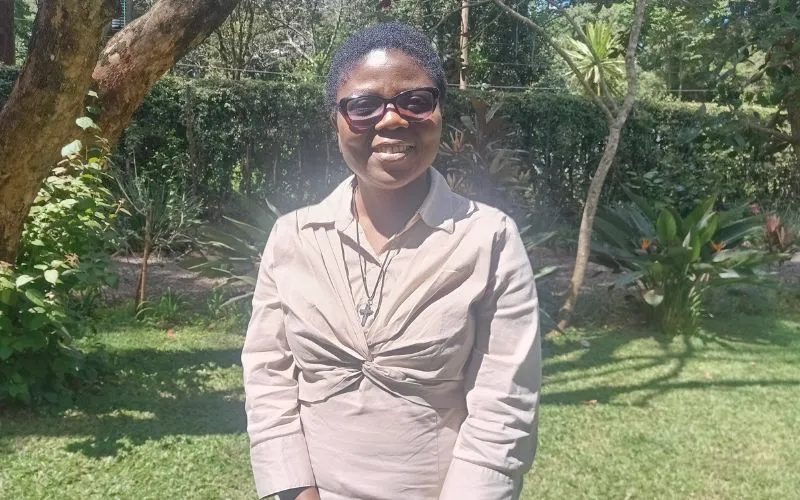 Léocadie Lushombo. Credit: ACI Africa
Léocadie Lushombo. Credit: ACI Africa
“We are really practicing synodality because we listen, participate, and give some ideas on everyone’s paper,” the Congolese-born member of the Teresian Association said.
Lushombo, who lectures at Santa Clara University in California, U.S., said their deliberations on the first day of the convention are “very honest because it was really speaking about the Church as it is, not trying to hide things that are not beautiful, but speaking about the church as it is, sinful and holy.”
(Story continues below)
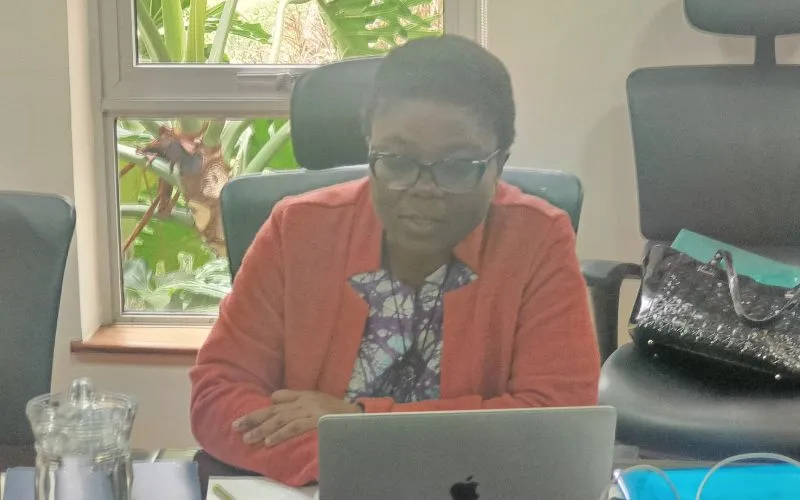 Credit: ACI Africa
Credit: ACI Africa
“We spoke about Christ and the Holy Spirit and God, the Trinity as a model of synodality, looking at the Trinity as the path we should follow,” she said.
Lushombo added that in their deliberations, the African theologians, pastoral practitioners, and other experts “are calling on the Church hierarchy to look at the Trinity as a model.”
“Pope Francis is calling on Bishops, the Priests to act as a Synodal church, as a listening church, as an inclusive church,” the Congolese lecturer told ACI Africa on the sidelines of the convention that ASI, a partnership between the Jesuits Conference of Africa and Madagascar (JCAM), the Symposium of the Episcopal Conferences of Africa and Madagascar (SECAM), and the Association of Member Episcopal Conferences in Eastern Africa (AMECEA), organized.
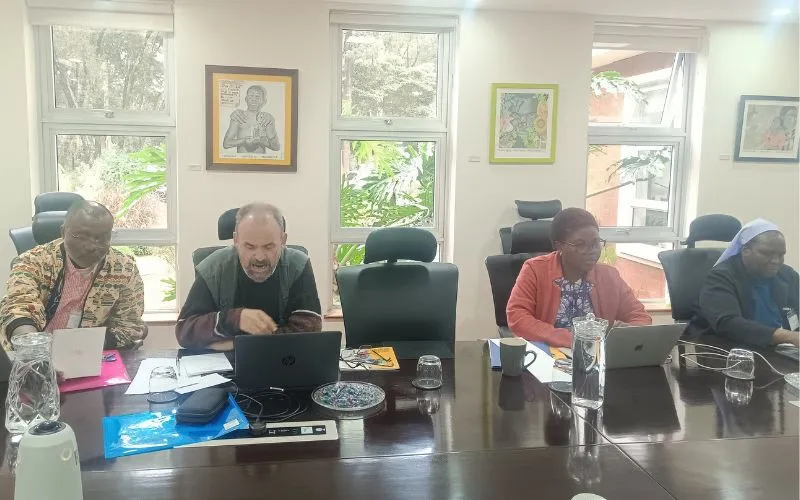 Credit: ACI Africa
Credit: ACI Africa
She continued, “What we have been doing is looking at the theological foundations. We’re not just doing gathering and talking’ we’re thinking what are the foundations for us as Christians and where God is speaking and leading (us); God is a predicate of the synodal process and we have to learn from that.”
On her part, Sheila Pires, who is serving as Secretary of the Synod on Synodality Commission for Information told ACI Africa that at the ASI-initiated convention, “we are sharing ideas, because each of us has a chapter to write, and this will then be part of a publication that has to do with the Synod in the Church in Africa.”
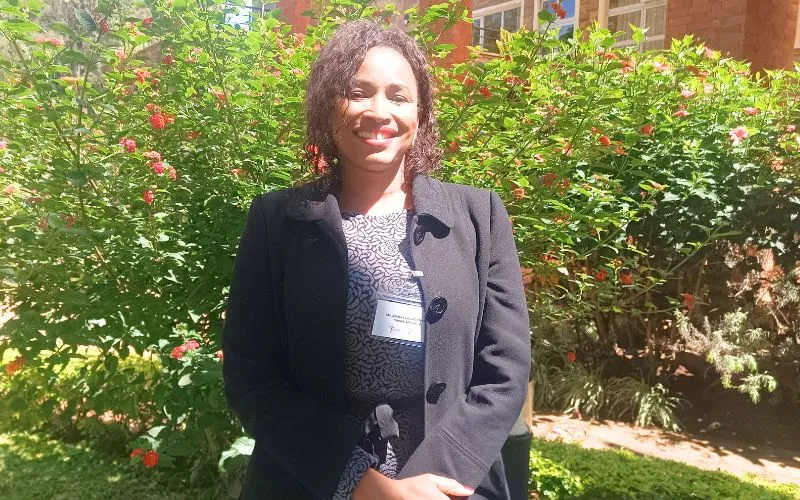 Sheila Pires. Credit: ACI Africa
Sheila Pires. Credit: ACI Africa
“It will be interesting to share all these experiences and also our own experience, from October 2023 until now, and also to talk about the new document in preparation for the second session of the Synod,” Ms. Pires said.
The South Africa-based Mozambican journalist, who serves as the Communications Officer of the Southern African Catholic Bishops’ Conference (SACBC) is reflecting on the theme, “A Synodal Church of the Young and Young at Heart”.
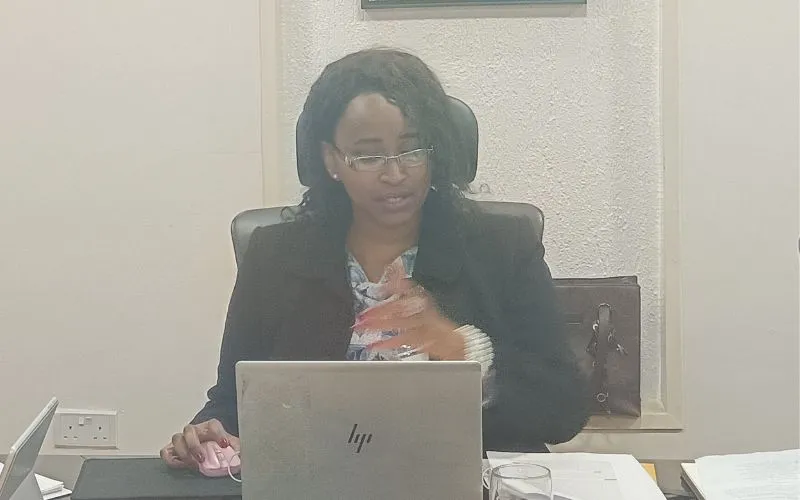 Credit: ACI Africa
Credit: ACI Africa
She told ACI Africa during the June 20 interview that the Church is not “only for young people; the Church in Africa is a young church”, and added, “If we look at the existence of the Church in Africa compared to the Church in other parts of the world, our church is a young, active, and vibrant church; it's growing.”
Ms. Pires went on to appeal to members of the Symposium of the Episcopal Conferences of Africa and Madagascar (SECAM) to organize more events on the Synod and Synodality.
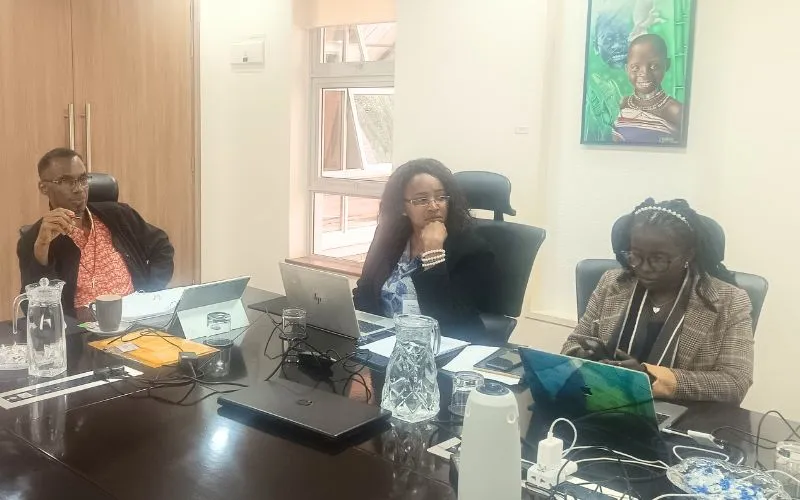 Credit: ACI Africa
Credit: ACI Africa
“We have to promote the Synod and synodality more in Dioceses and Parishes because it is only known by a few people, only those who are interested in knowing about the life of the Church, whereas the Catholic who goes to (Holy) Mass on Sunday and returns home, many of them don't know what's happening in the Church in relation to the Synod,” she said.
For Sr. Veronica Jemanyur Rop, the convention and the theological and pastoral reflections involved are an “eye opener”
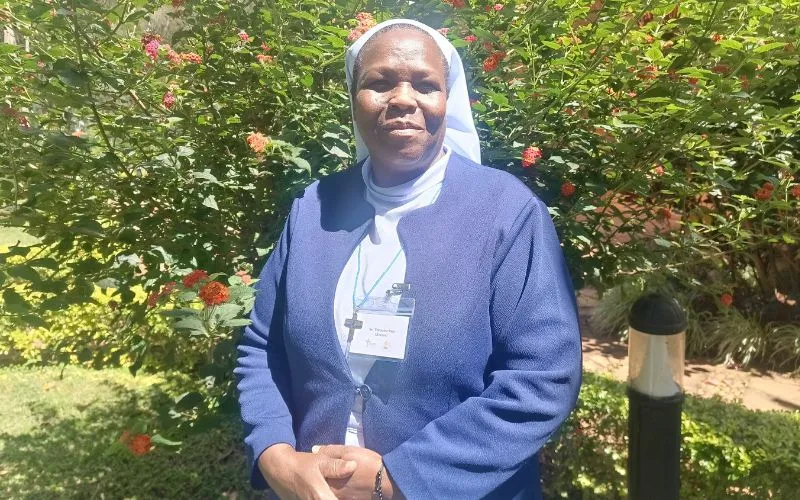 Sr. Veronica Jemanyur Rop. Credit: ACI Africa
Sr. Veronica Jemanyur Rop. Credit: ACI Africa
The convention “is rich in terms of contributions. People share ideas on someone’s topic and the people are very generous and critical in their reflections,” the Kenyan-born member of the Assumption Sisters of Eldoret (ASE) told ACI Africa.
She said that the discussions will permit participants to “improve the paper and also look at what is happening here in Africa, the issues that touch us and what synodality means for us.”
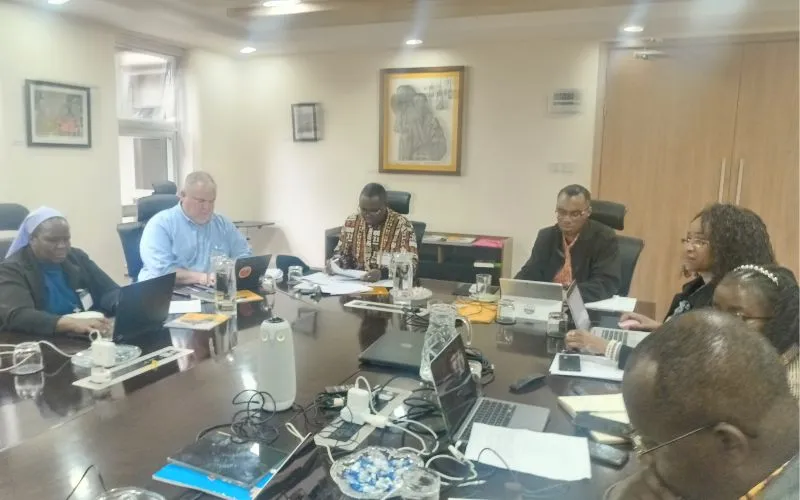 Credit: ACI Africa
Credit: ACI Africa
“As we journey together and reflect on issues that really touch the heart of the heart of the Church here in Africa, we should come up with materials or the information that can enrich us, a resource to find more information,” Sr. Rop, who lectures at the Center for Social Justice and Ethics of the Catholic University of Eastern Africa (CUEA) told ACI Africa.
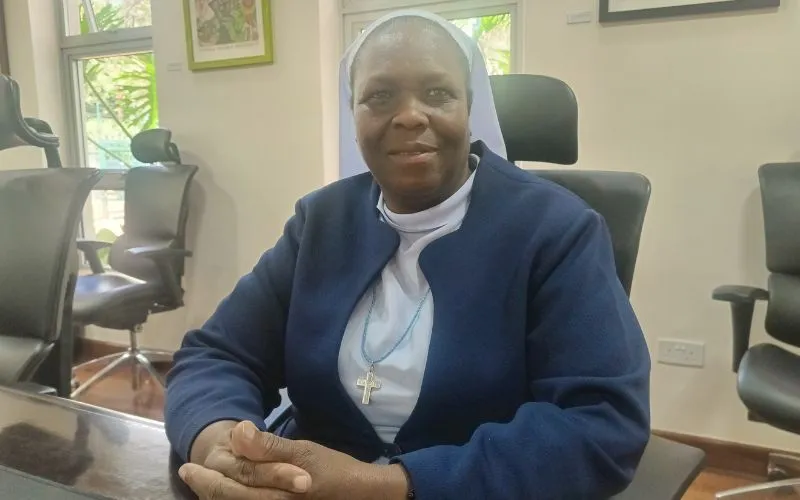 Credit: ACI Africa
Credit: ACI Africa
On his part, Fr. Bienvenu Mayemba said he feels “more enriched by different contributions and the topics were very relevant.”
“It was very helpful to hear the different voices from different parts of Africa speaking about their own experience about the church, about the synod, about the Pope,” Fr. Mayemba told ACI Africa.
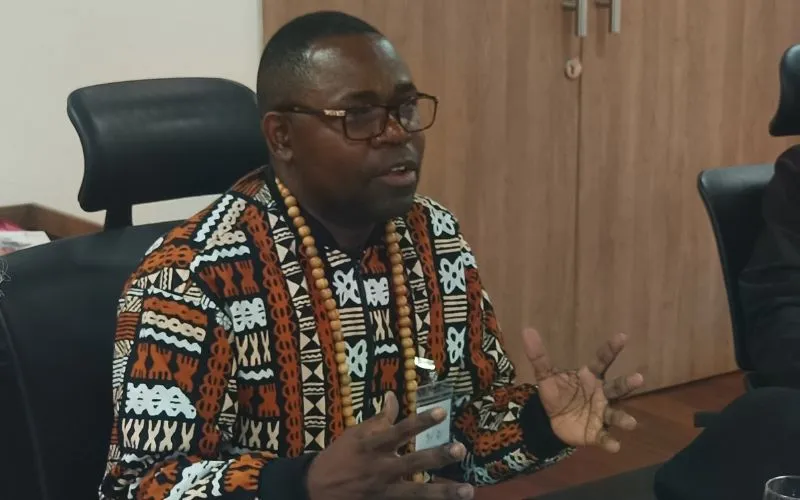 Credit: ACI Africa
Credit: ACI Africa
Referring to the two-phase convention initiative, the Congolese-born Jesuit Professor of African theology at the Jesuit School of Theology in Ivory Coast added, “I think it was very relevant to put this conversation.”
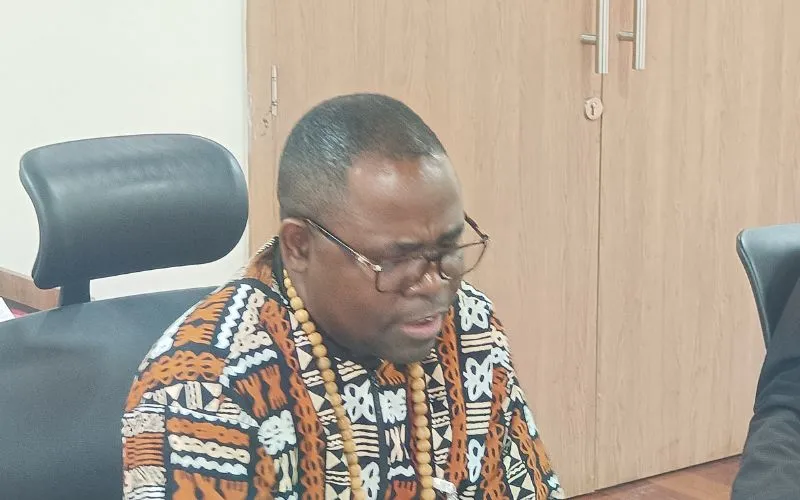
Meanwhile, according to Sr. Josée Ngalula, the convention is an opportunity for participants to “think deeply about the synodal process; not just theological ideas, but grassroots experiences from several countries.”
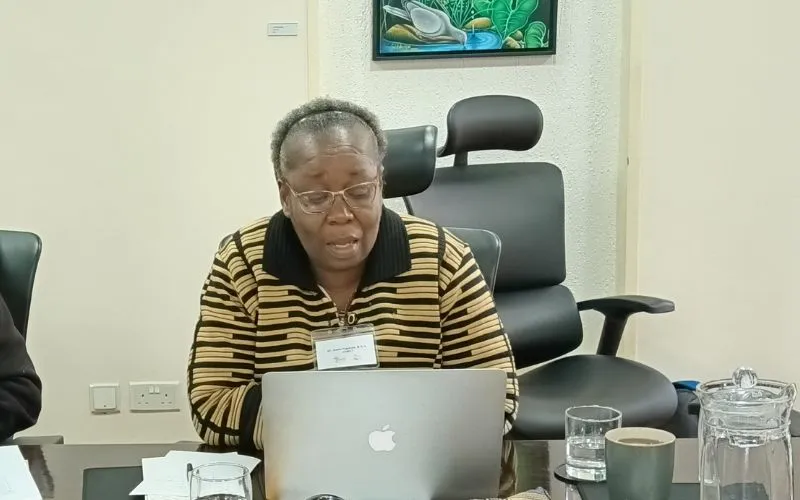 Sr. Josée Ngalula. Credit: ACI Africa
Sr. Josée Ngalula. Credit: ACI Africa
The Congolese member of the Sisters of St. Andrew said it is important for the Church in Africa to “get involved in the synodal process practically so that all voices are heard in Africa’s synodal journey.”
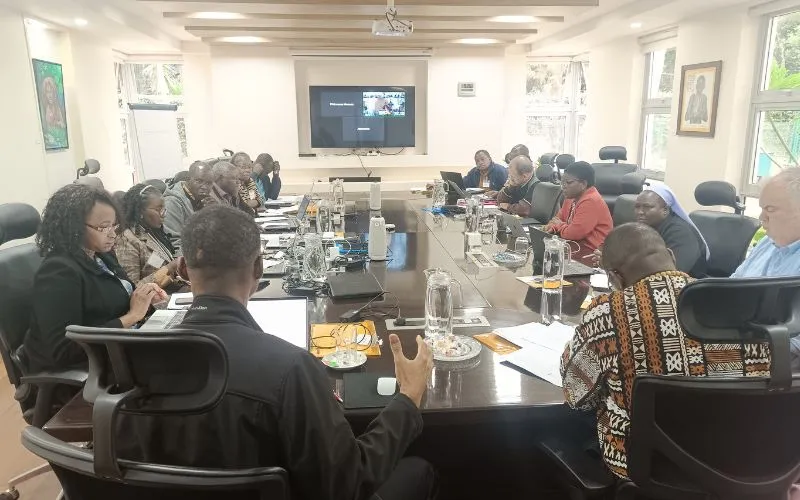 Credit: ACI Africa
Credit: ACI Africa


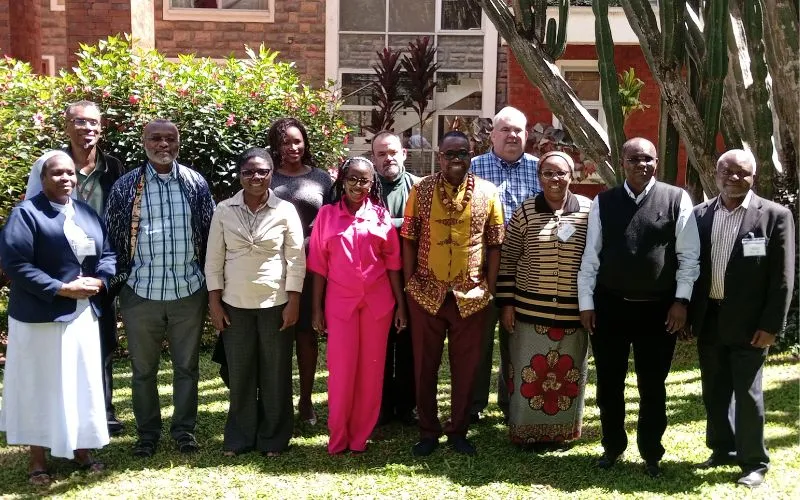
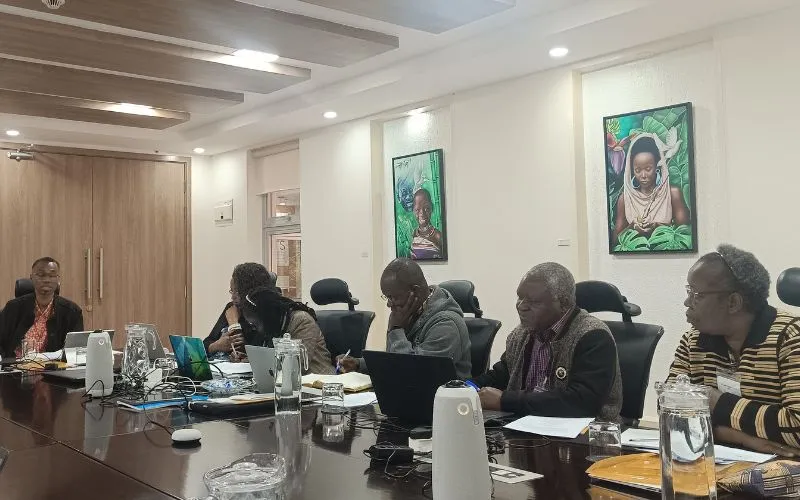 Credit: ACI Africa
Credit: ACI Africa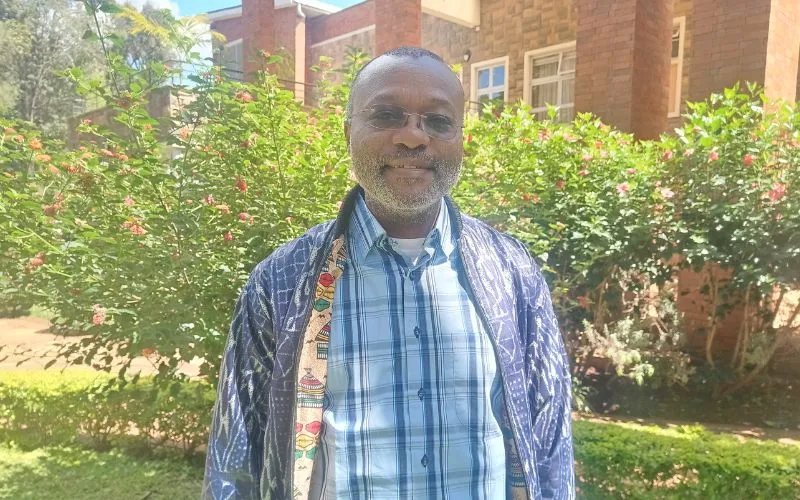 Fr. Ludovic Lado. Credit: ACI Africa
Fr. Ludovic Lado. Credit: ACI Africa
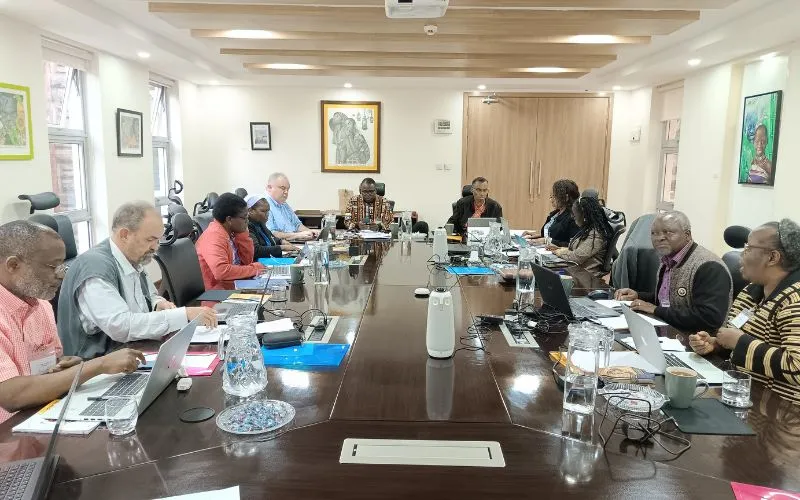 Credit: ACI Africa
Credit: ACI Africa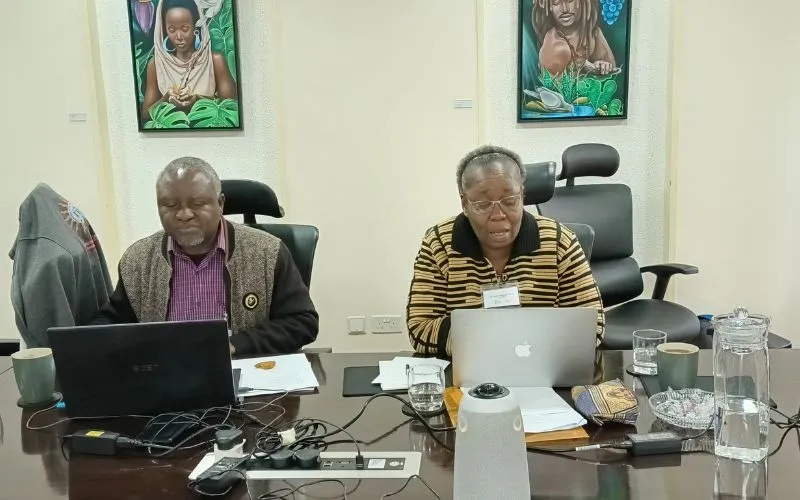 Credit: ACI Africa
Credit: ACI Africa Léocadie Lushombo. Credit: ACI Africa
Léocadie Lushombo. Credit: ACI Africa Credit: ACI Africa
Credit: ACI Africa Credit: ACI Africa
Credit: ACI Africa Sheila Pires. Credit: ACI Africa
Sheila Pires. Credit: ACI Africa Credit: ACI Africa
Credit: ACI Africa Credit: ACI Africa
Credit: ACI Africa Sr. Veronica Jemanyur Rop. Credit: ACI Africa
Sr. Veronica Jemanyur Rop. Credit: ACI Africa Credit: ACI Africa
Credit: ACI Africa Credit: ACI Africa
Credit: ACI Africa Credit: ACI Africa
Credit: ACI Africa
 Sr. Josée Ngalula. Credit: ACI Africa
Sr. Josée Ngalula. Credit: ACI Africa


